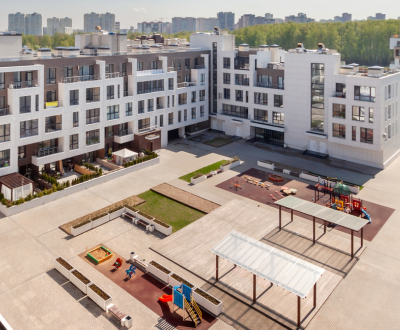Future Real Estate Urban Planning
Insights on Urban Planning for Future Commercial Real Estate
Urban planning is no longer just about zoning laws and infrastructure development; it's becoming a critical force in shaping the future of commercial real estate. As cities evolve, so do the demands and expectations of businesses, investors, and residents. The intersection of urban planning and commercial real estate is where innovation meets opportunity, and understanding this dynamic can unlock significant value.
The Rise of Mixed-Use Developments
One of the most notable trends in urban planning is the rise of mixed-use developments. These projects integrate residential, commercial, and recreational spaces within a single area, creating vibrant, self-sustaining communities. This shift reflects a broader trend toward walkability, convenience, and sustainability. As urban populations grow, mixed-use developments allow cities to maximize land use while creating spaces that cater to the needs of modern urban dwellers.
For commercial real estate investors, mixed-use developments offer diverse revenue streams and reduced risk. Retailers and office tenants benefit from built-in foot traffic, while residents enjoy easy access to amenities. This synergy enhances property values and attracts a variety of tenants, making mixed-use projects a smart investment in urban environments.
Sustainability and Green Building Practices
Sustainability is another key focus of contemporary urban planning, profoundly impacting commercial real estate. Large cities are prioritizing green building standards, with regulations increasingly requiring energy-efficient designs and environmentally friendly materials. Buildings that adhere to these standards not only promote a healthier environment but also tend to attract high-quality tenants and achieve higher rental rates.
Investors and developers are responding by integrating sustainability into their projects from the ground up. This includes everything from using renewable energy sources to incorporating green spaces and designing for energy efficiency. As urban planning continues to emphasize sustainability, green buildings are likely to become the standard rather than the exception in commercial real estate.
Technology and Smart Cities
The concept of smart cities is also gaining traction in urban planning, with technology playing a pivotal role. Smart cities leverage data and connectivity to improve the efficiency of urban services, including transportation, utilities, and even real estate. For commercial properties, this means better integration with city infrastructure, enhanced security, and more efficient energy management.
Commercial real estate investors are increasingly looking to capitalize on the smart city trend by developing properties that are tech-enabled and future-proof. This might include advanced building management systems, IoT-enabled devices, and flexible workspaces designed to meet the evolving needs of tenants. As urban planning continues to integrate technology, properties that align with smart city initiatives will likely see higher demand and greater long-term value.
Urban Planning and Market Resilience
Lastly, urban planning is essential for market resilience. Well-planned cities are better equipped to handle economic fluctuations, natural disasters, and other challenges. This stability makes them attractive to commercial real estate investors, who are increasingly looking for opportunities in cities with strong, forward-thinking urban planning.
For example, cities that invest in robust public transportation systems, sustainable infrastructure, and disaster preparedness are more likely to maintain or increase their property values over time. Investors who understand the link between urban planning and market resilience can make more informed decisions, choosing markets that offer short-term gains and long-term security.
In conclusion, urban planning is a powerful tool in reshaping the commercial real estate landscape. By focusing on mixed-use developments, sustainability, technology, and market resilience, urban planners are creating environments that meet the needs of modern businesses and residents. For commercial real estate investors, staying attuned to these trends is essential for identifying opportunities and maximizing returns in an ever-evolving market. As cities continue to grow and change, the influence of urban planning on commercial real estate will only become more significant, making it a crucial area of focus for anyone involved in the industry.
Read More






